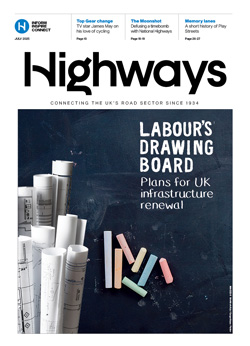A leading transport journalist has written a hard-hitting article explaining why he thinks the timescales and benefits of driverless vehicles is vastly overhyped.
Writing in The Spectator Christian Wolmar said careful reading of announcements about the technology is “sufficient to expose the limitations of what is actually being promised. As one of the exhibitors in [The Autonomous Vehicle Exhibition in] Stuttgart explained to me, “The problem is that the marketing people get wind of something in the company and push it to the maximum without any real awareness of the limitations. That explains much of the hype.”
He says politicians are making “outlandish statements”, pointing at Transport Technology Minister Jesse Norman’s comment two weeks ago, that “Our entire use of roads is to be revolutionised by autonomous vehicles”, and criticises the pouring of large sums — a promised £180 million so far — into “bizarre research projects such as the development of strange robot cars slower than a Reliant Robin and allowed only on pavements in Milton Keynes”.
He adds, “We are told by the likes of Uber and Waymo, Google’s autonomous vehicles wing, that we will forego our individual cars for the delights of being transported in driver-less, shared-use electric vehicles reminiscent of the new dockless hire bikes or car–sharing companies like Zipcar. This is a strange conflation of three separate revolutions, electric, shared use and driverless, each of which on its own would have enormous societal impact and yet are presented by the tech companies and some politicians as desirable and inevitable. In truth, all three concepts are fraught with obstacles, not least the shortage of battery capacity in the world, people’s natural desire to own their own vehicles, and everyone’s understandable hesitance about putting their lives in the hands of a computer.”
He concludes his argument with the comment, “Of the 20 or so exhibitors I spoke to, not a single one believed autonomous cars would be on our roads within a decade. There are a myriad problems, ranging from insurance issues to the limitations of the technology and the resistance of the public to travelling in them. Rather than swallowing the fatuous statements from politicians about how driverless cars are going to change our lives, we need a sober assessment of their potential benefits, if any, and, crucially, of their downsides.”
Christian Wolmar will be explaining more of his thoughts in the forthcoming issue of SMART Highways. He has also written a book “Driverless Cars, On The Road To Nowhere” which is available on Amazon.





